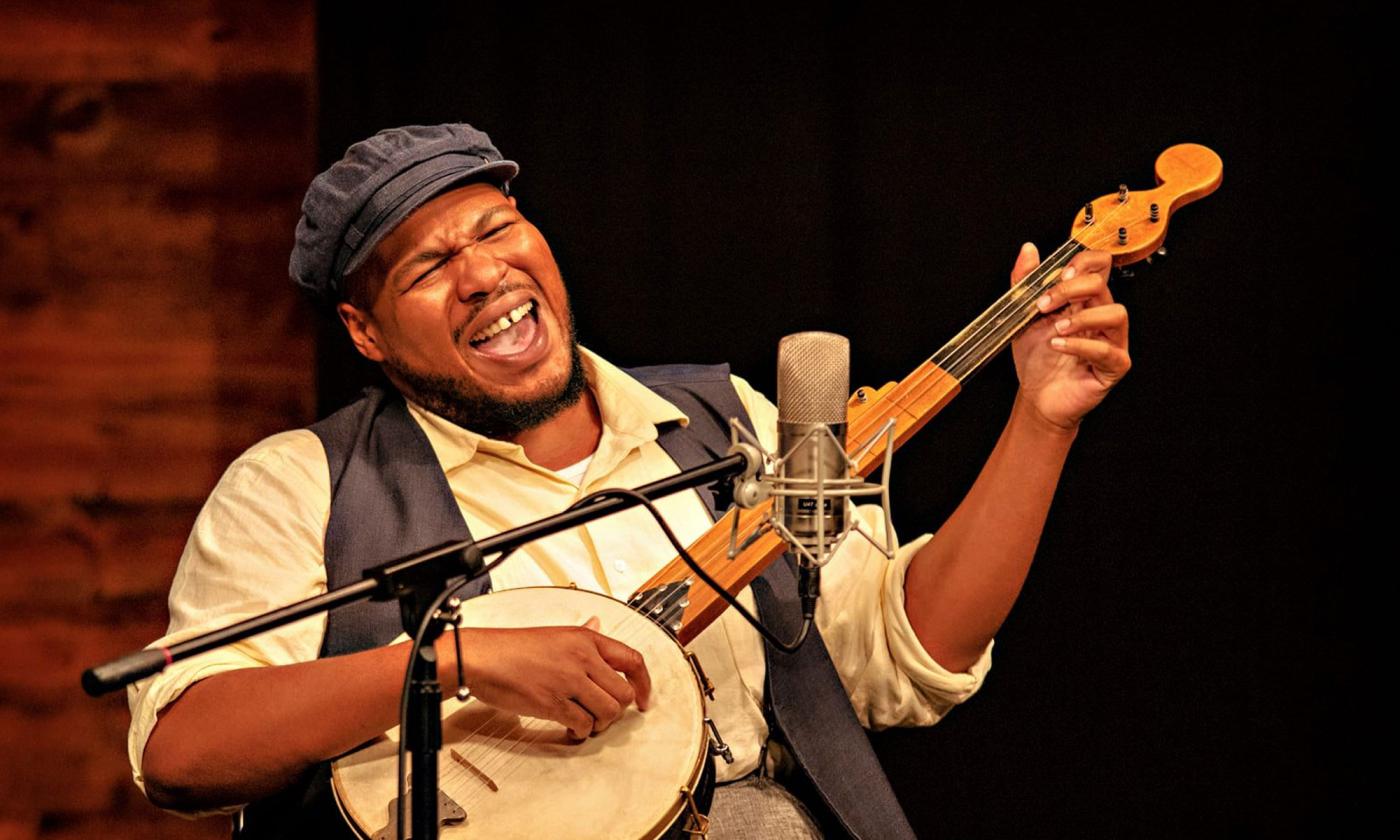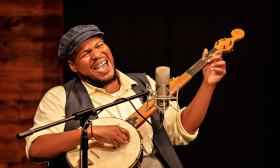
Jerron Paxton
"Be of service to the music" is what makes the soul in Jerron Paxton's music speak.
Jerron Paxton embraces what he calls Black folk music - which takes on various meanings. The music he heard as a child was from people of plantation country. Growing up close to his grandmother, Paxton heard her singing the songs from her childhood. From a cotton plantation of modern times, with old-world values, such as having only one road, (which you could not be on after certain hours, or would be subject to whatever the owner of that plantation wanted to do to you). She spoke of moving around to three plantations before she was 16 saying that she had to leave, with her mother and father, and nine or 10 children. Music is what kept them grounded. "I am fortunate enough to drink that music straight from the fountain," Paxton says.
Paxton also says he composes music for the people, is always aware of his audience, and believes he should "be of service to the music." This is what makes the soul in Paxton's music speak. He laughs and tells the story of a time when he played a LOT of fiddle music, a lot of solo fiddle music, realizing that he was the only one who liked solo fiddle music, so much that it even got old for him. So, he changed his routine to be in touch with his listeners.
Often known as a minstrel banjo, Paxton's Stichter model banjo is the real deal; this instrument was developed in 1848, two decades after the banjo became popular in non-African hands. He also plays the guitar, piano, fiddle, harmonica, ukelele, Cajun accordion, and bones (percussion). Born in the Watts district of Los Angeles, Paxton grew up surrounded by family who brought their music and sensibilities from the plantation country of Louisiana. From this, he developed an uncanny ability to bring early 20th-century American blues into his love of storytelling and good humor. Paxton began playing the fiddle at age 12, and the banjo at 14. By age 16 he had lost most of his eyesight, hence the name, Jerron "Blind Boy" Paxton.
Paxton has opened for the blues greats, Robert Cray and Buddy Guy, participates in the Keeping the Blues Alive Cruise, tours halls and festivals internationally, and continues to write new songs and refresh old ones.








